Q1.What might be in your pockets?
In a world where rice is the world's most grown crop, men make up the majority of leaders, and we value soil.
By Tucker Cholvin
First of all, in a world where men make up the majority of leaders I tend to think that we will have a lot of shit in our pockets, as men tend to have more pockets.
Here we value soil, so that has downstream implications on what modes of transport we use. We will probably want to build fewer roads and paved surfaces (parking lots in particular) to maximize the amount of permeable surface in our cities. This means that we will tend to prioritize modes of transport like trains, especially subways, that require less surface area. Bike paths and cycletracks may become more common, since this allows greater density in travel with less paving surface needed. What does this mean for our pockets? We will probably have an RFID transport card (SmarTrip in DC, Oyster in London) a monthly train pass (like a monthly MetroNorth farecard in NYC) or an entitlement card like the under-25 pass. We may have fewer car keys in our pockets, but we might have more things that bikes need: Keys for bike locks, U-locks themselves, or cables, or inner tubes.
Men make up a majority of the world's leaders here, so I assume that means a degree of stasis in what we currently have in our pockets. Wallets always seem to be much in demand for men, but I also assume here that the trend in slimming down men's wallets will continue. Less cash, fewer credit cards, streamlined systems of identification (like Real ID in the United States) and a gradual shift towards moving many of these services onto mobile phones. Also, if we value soil enormously, wallets may start being made from non-leather materials given the effect that cattle farming and ranching has on soil, forests, etc.
I take as a given that we continue to have phones in our pockets. But that could be impacted by the degree to which we value soil. Whose soil? If we value only our own (UK/US) soil, then maybe not much change. Do we value the soil in the Democratic Republic of Congo where the rare earth metals needed to make our phones are mined and extracted? In that case we may see a trend towards mobile phones becoming more expensive and therefore less common, smaller, or both.
I also wonder if the value we place on soil means that coinage might become less common, since most of our paper money is from natural fibers and plastic, whereas coins are made from extracted metals. Or perhaps we could move to synthetic materials for coins.
I am struggling really hard to think about how rice as the world's most grown crop affects the contents of our pockets. I don't know if rice can be adapted into fibers or other materials that hold up like leather (wallets) or other types of fabrics. If it could, there are lots of uses it could fulfill there. Perhaps in a world where rice is the world's most grown crop we are all walking around with a pair of chopsticks and a spoon, always ready to enjoy some sushi or Chinese food should we encounter it. (That does not sound bad to me!)
Men are leaders; I assume that means the world continues to be largely unsafe for women. We may carry ways of protecting ourselves, like mace, small knives, or other small weapons.
I am asking myself what is not in our pockets now that might be in this world. If we value soil, might we carry fertilizer, or bags and gloves to pick up litter/rubbish with? Perhaps we would carry seeds in our pockets, waiting to cast them about in places that need it (like Johnny Appleseed). This might especially be true of plants that are nitrogen-fixers and help enrich soil.
More alternative spaces
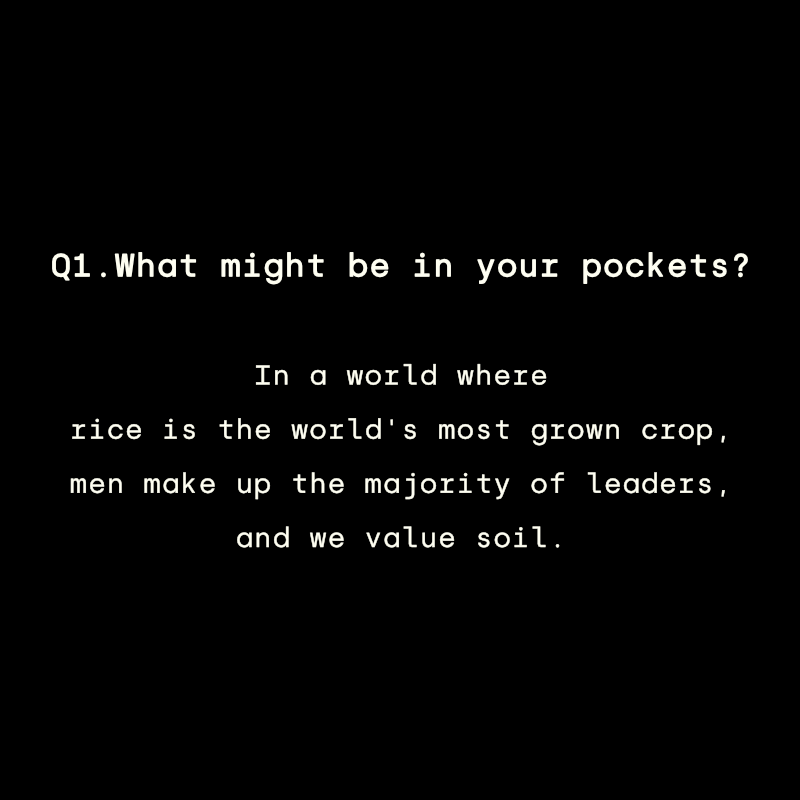
Question 1 - TuckerProject type
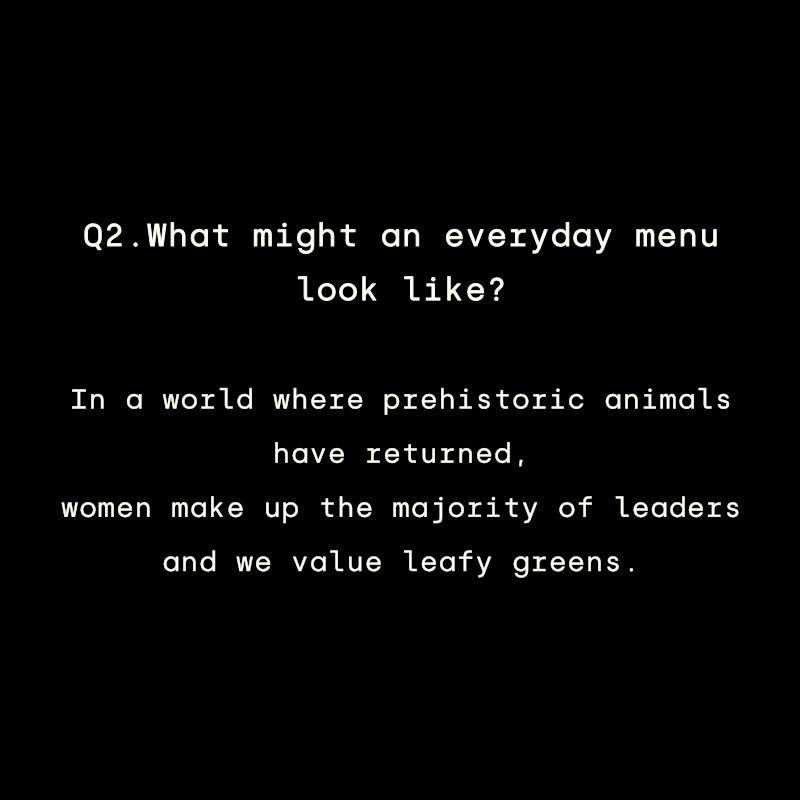
Question 2 - TuckerProject type
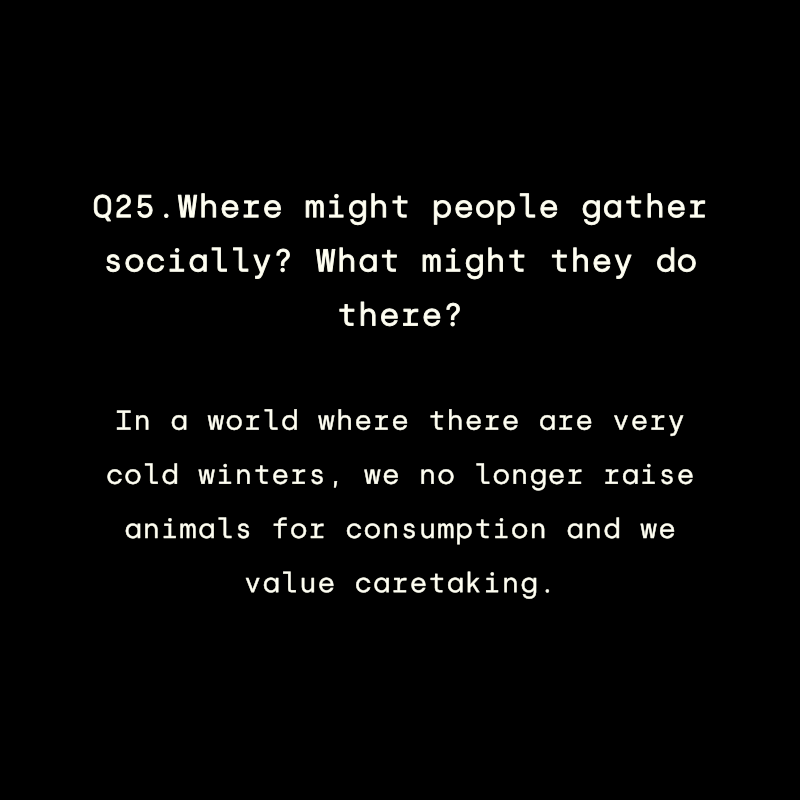
Question 25 - AnonProject type
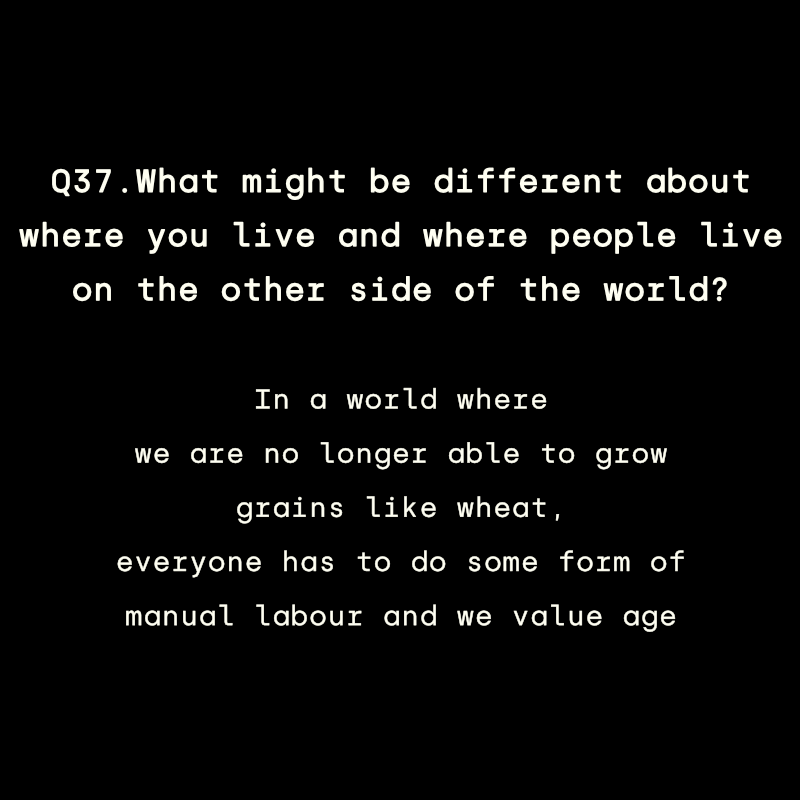
Question 37 - AnonProject type
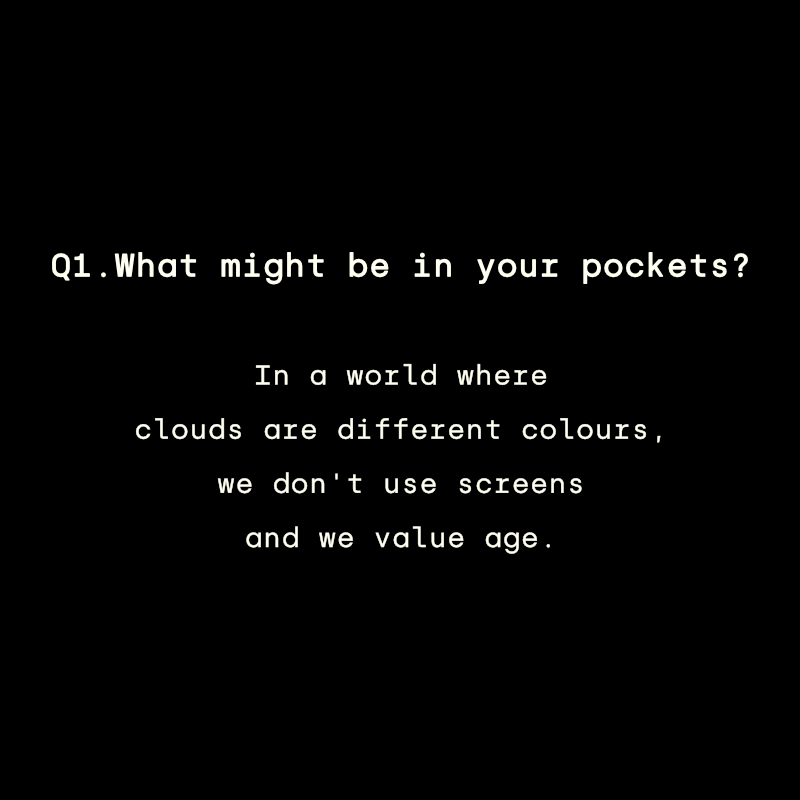
Question 1 - NatalieProject type
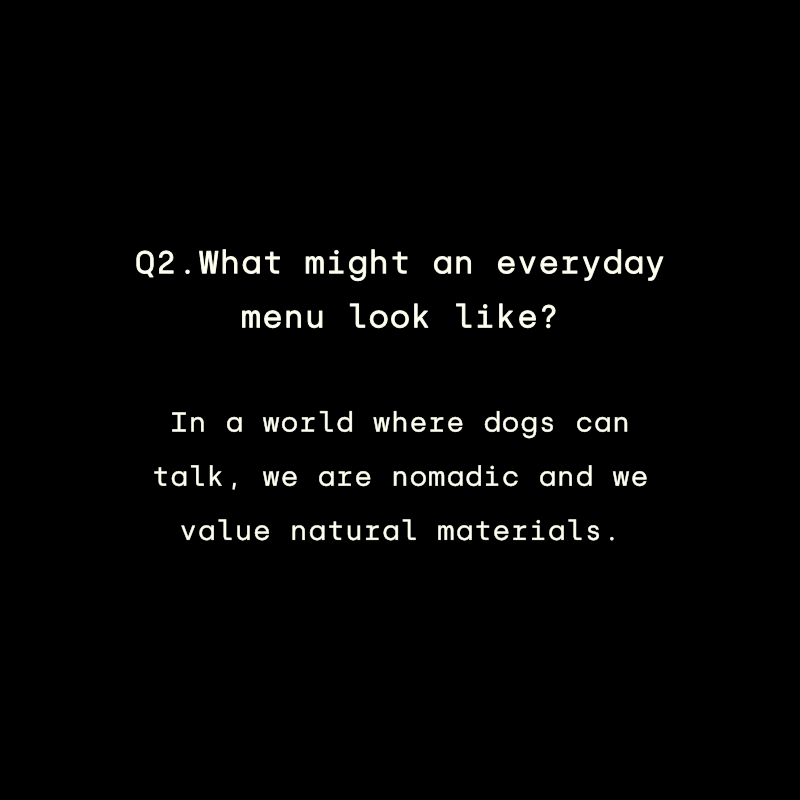
Question 2 - NatalieProject type
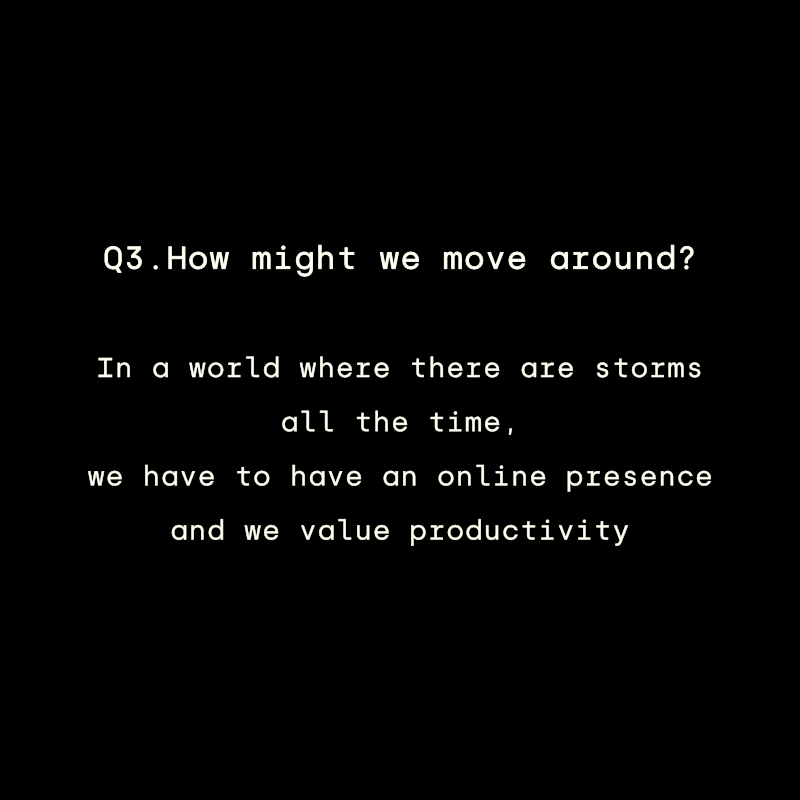
Question 3 - NatalieProject type
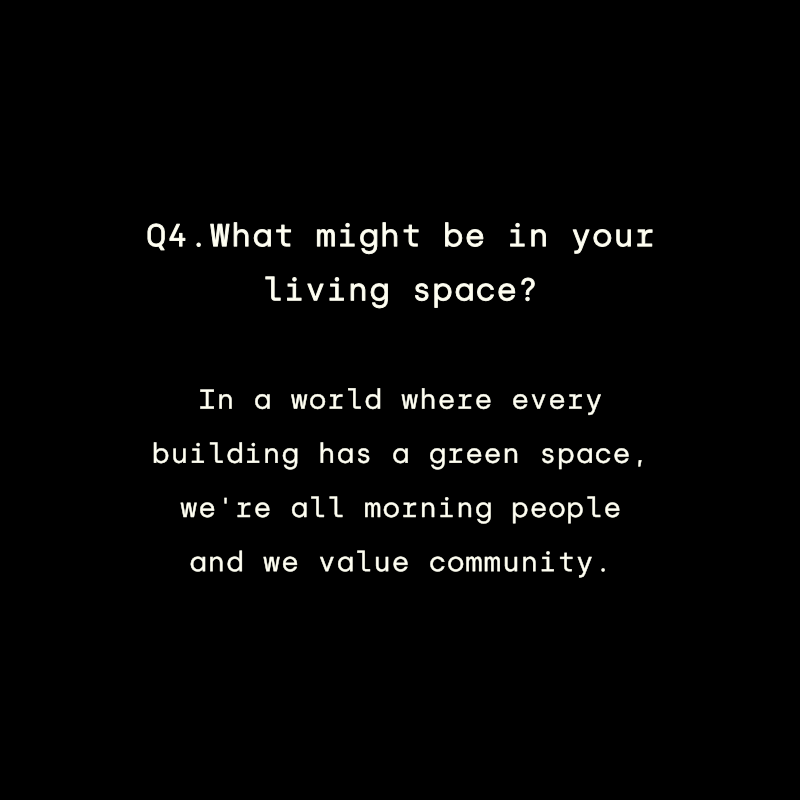
Question 4 - NatalieProject type
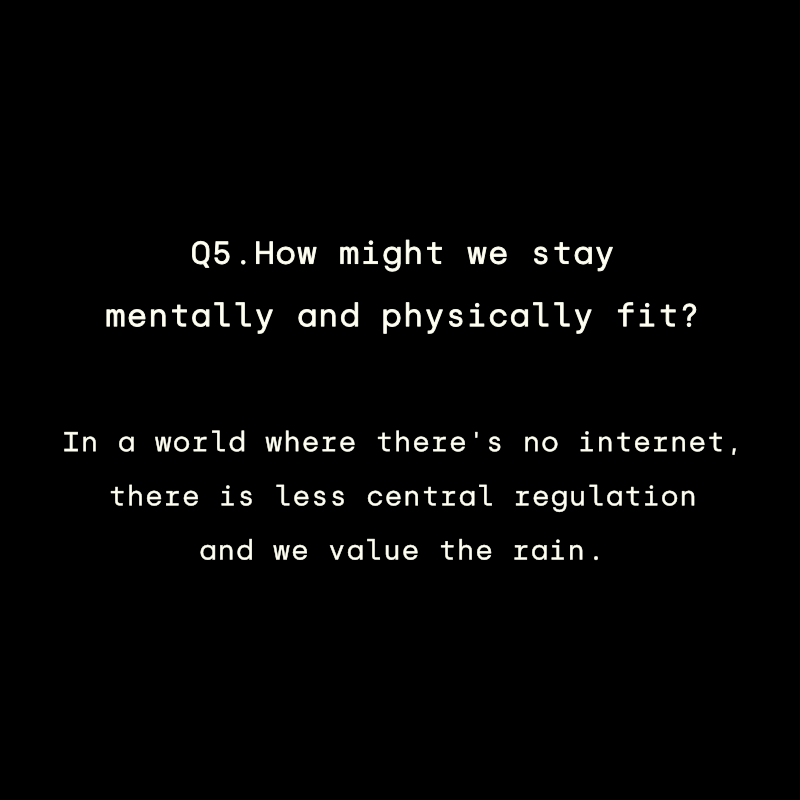
Question 5 - NatalieProject type
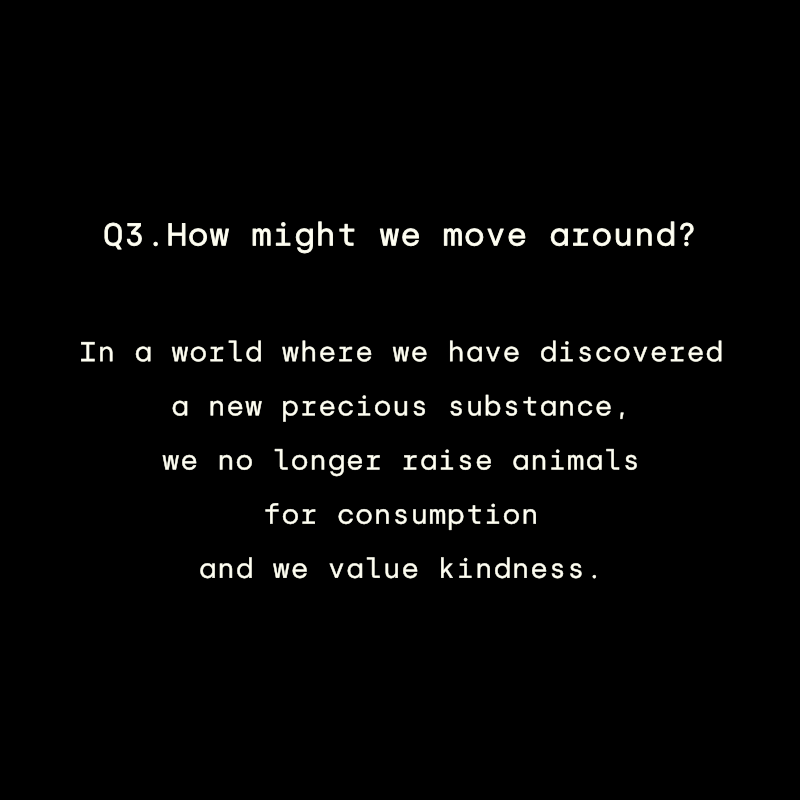
Question 3 - TuckerProject type
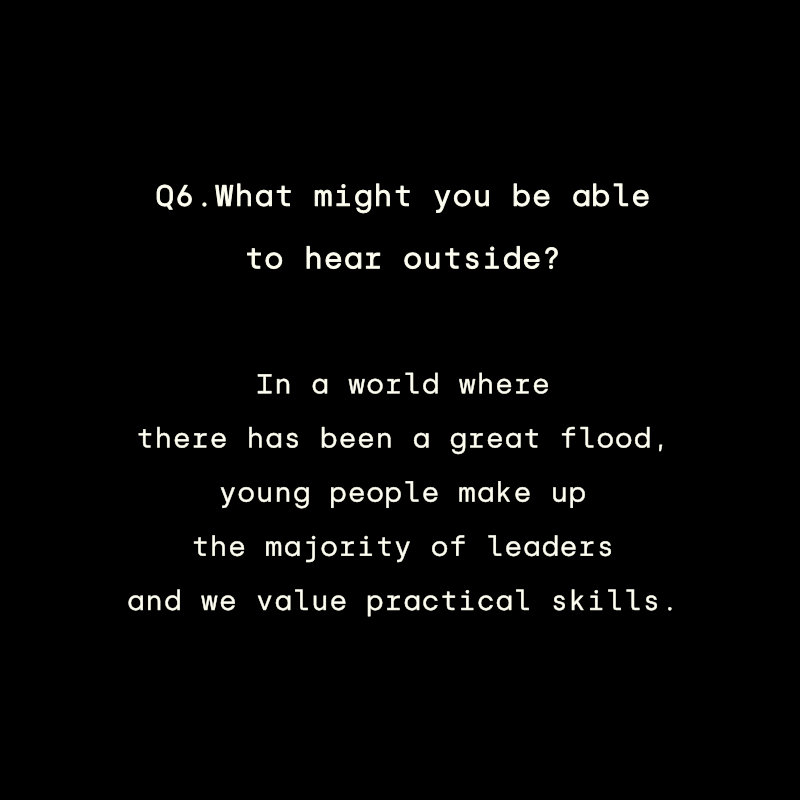
Question 6 - NatalieProject type
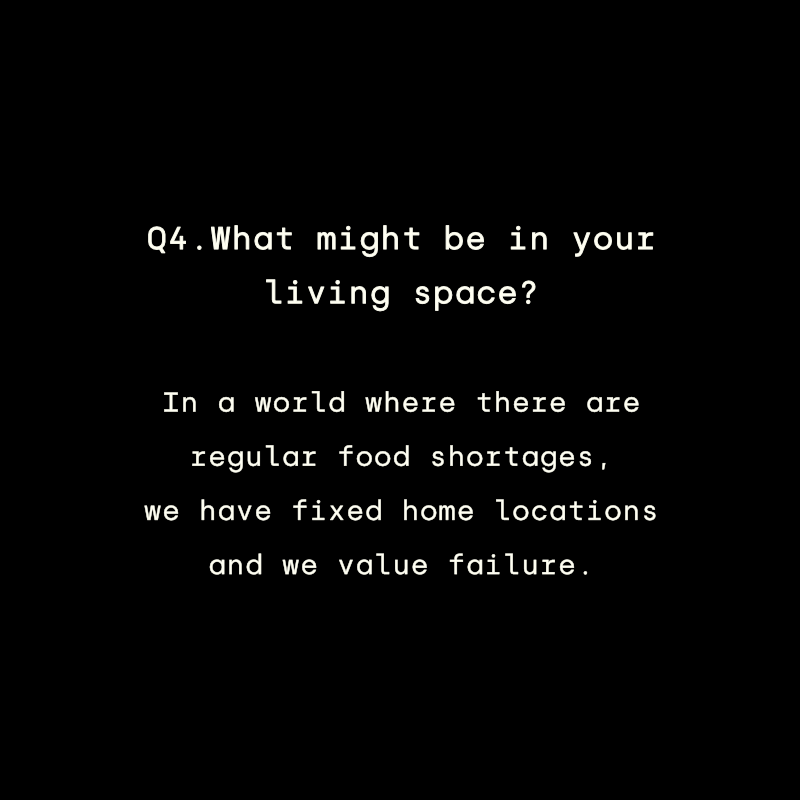
Question 4 - TuckerProject type
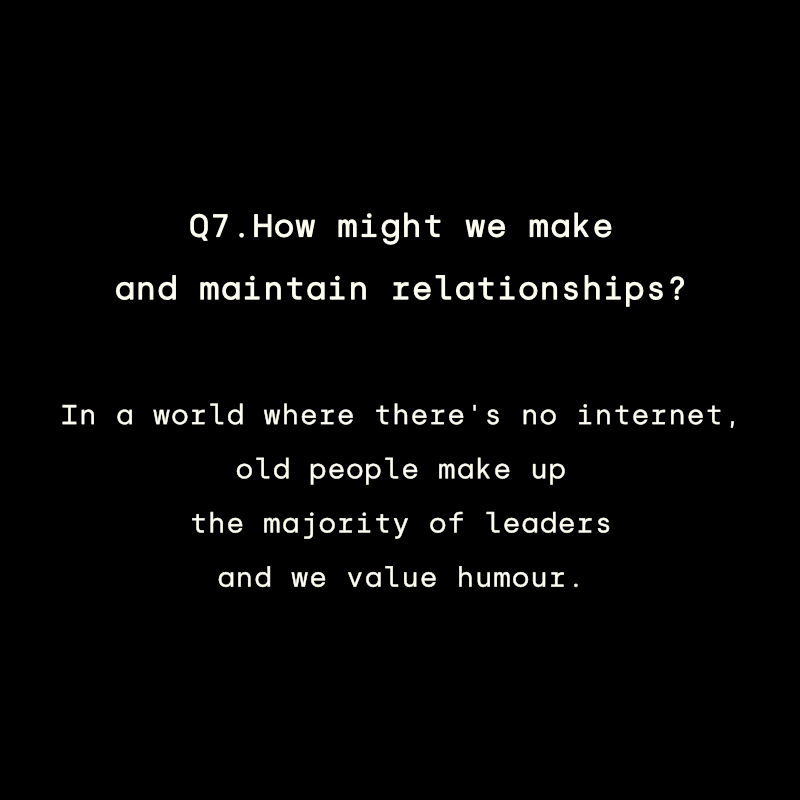
Question 7 - NatalieProject type
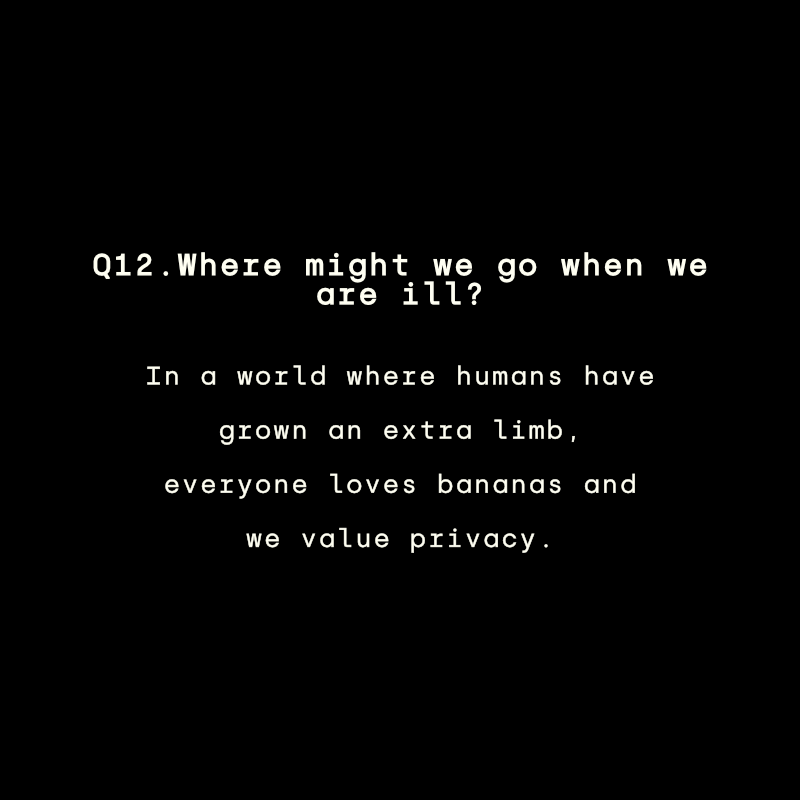
Question 12 - TuckerProject type
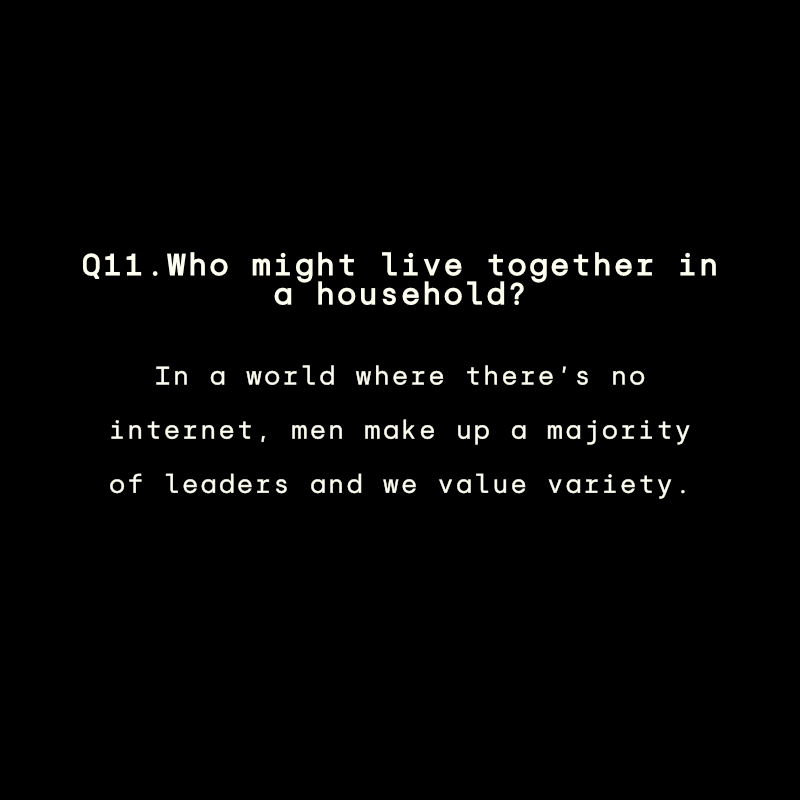
Question 11 - TuckerProject type
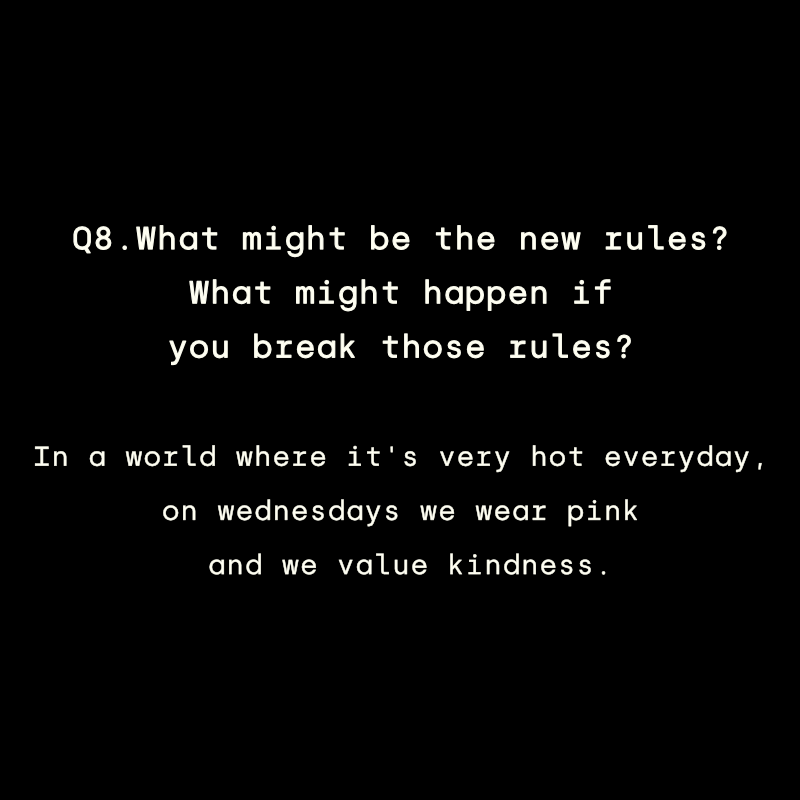
Question 8 - NatalieProject type
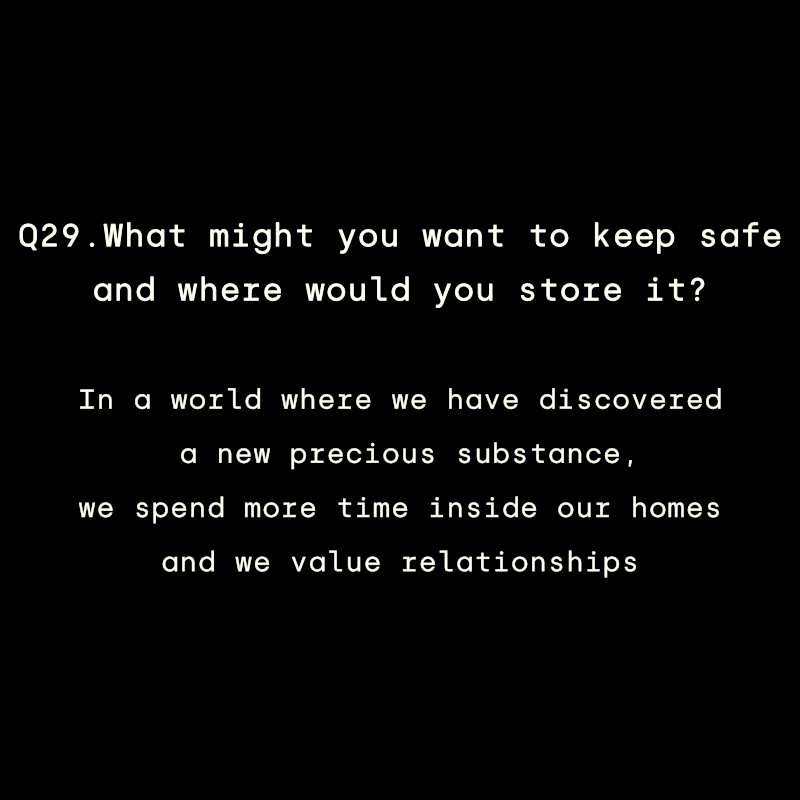
Question 29 - AnonProject type
Imagining Future Spaces is a project by Natalie Harney designed to support and inspire conversations about what alternative worlds might look and feel like.
Site Links
©Natalie Harney 2020, made with Semplice